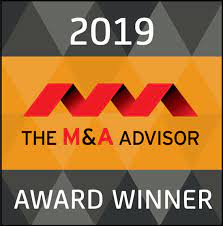It’s not easy to be a CEO or CFO, or any kind of business leader, in a time of crisis.
Here’s how I know:
I was the CFO of Equinix in August 2000, when we took the company public and priced 20 million shares at $12.00. We had raised $240M on YTD revenues of $1M! We had an operating loss of $38M. We were building eight data centers simultaneously. We took on $200M of debt as well. Exodus Communications was a public competitor, and they were expanding like crazy. The pressure to compete was high!
As we headed into the fall, however, everything changed. We realized that our market demand was disappearing—fast. We weren’t even close to meeting booking forecasts. By December, our stock had collapsed by 70%. We were testing loan covenants. Reverse stock splits. Anything to stay above water. In a matter of months, we went from extreme high to extreme low, watching company after company fall around us.
It was around that time that I remembered what one of our board members, Andy Rachleff, once told me: “A great management team can defeat a bad market.” Andy is one of the founders of Benchmark Capital and one of the founding investors in Equinix.
I think that’s exactly what you need to hear right now.
In the midst of this unprecedented time, people are fundamentally confused, and they need your guidance more than ever. As you prepare to address this confusion, both internally and externally to your organization, it’s imperative to remain calm. Take a deep breath. You’re no doubt a seasoned professional, so you know that things are rarely as bad as they seem—or as good. You’re somewhere in the middle. Embrace that center with balance and realism. This is not a time for panic or haste.
Now is the time for great management.
Here are five pieces of advice to carry you through:
- Amp up all forms of communication. I mean all forms, to all people: employees, vendors, customers, creditors, and shareholders. In times of crisis, it is impossible to over-communicate. Communication builds credibility. Silence breeds distrust.
- Be authentic in your communications. As CEO, you set the tone from the top. Everyone is watching. Be calm but purposeful. Balance your approach somewhere between reality and optimism. While people need to understand the facts, they also need to see the path forward and trust that a better day will come. One of my favorite examples of this approach is in a book called The Endurance, about the great explorer Ernest Shackleton. After his ship was crushed by ice in Antarctica, he defied all odds, through incredible leadership, to save every single one of his men. Everyone got home alive. Read it!
- Focus on the cash. Remember that 1980’s public service campaign: “It’s 10pm. Do you know where your children are?” During times like these, I like to say, “It’s 10am. Do you know how much cash you have?” Remember, organizations die from a lack of cash, not earnings. You pay your bills with cash, so make cash generation your number one goal. If you are positive cash flow, congratulations! Stay that way! If you are not, get going! You always have options—until you run out of cash.
- Manage with a strong short-term bias. Here’s the harsh reality: If you don’t address your immediate issues, the long run doesn’t matter. Ask yourself: Have you optimized your cost structure to the new demand level? Are you aggressively managing your working capital? Are you restructuring properly to respond to your customers’ needs? Get clarity as to what is core and should be held firm, as opposed to what needs to change. Build on proven strengths. Create momentum with a series of good decisions. Sail your company into the safe harbor, and prepare for when this storm passes. Stabilize your situation and start building muscle mass.
- This crisis will pass, just like every crisis has before this. I say this not as a platitude, but as a call to action. Every crisis creates new opportunities. How can you take advantage of this situation? Are there competitors you should buy? New ways to create value? Make a list of potential moves and evaluate them. It’s difficult to imagine the light at the end of the tunnel right now, but it will come—and you want to be in a stronger position to move when the time arrives. A business that meets real needs and is the best at what it does rarely fails.
Curious about what happened to Equinix?
By September 2001 Exodus Communications went bankrupt as shares traded at $0.17. Cable and Wireless bought Exodus. By 2003, Cable and Wireless America went bankrupt.
During this same time, however, Equinix acquired a company in Asia, Pihana Pacific, which gave us a new market and also enables us to raise more equity. We successfully worked with our lending group and reset our loan agreements.
Bottom line: Equinix survived. And today, 20 years after the dot-com meltdown, the company has a $47B market cap.
This is a great story of surviving against tough odds. And it proved Andy’s comment to me all those years ago was true. Great management teams can defeat bad markets! I’m hoping yours will be one of them.
About the Author
Philip J. Koen currently serves as Chairman of Stack Infrastructure a leading provider of hyper scale, digital infrastructure. Prior to Stack Infrastructure, Mr. Koen served as Chief Executive Officer and Chairman of the Board of Directors of Intermedia, a mobile and integrated business cloud services company from May 2011 until February 2017. Prior to Intermedia, Mr. Koen served as Chief Executive Officer of Montero Partners, an advisory services company. From March 2006 to January 2010, Mr. Koen served as Chief Executive Officer and Director of Savvis, Inc., a global leader in cloud infrastructure and hosted IT solutions for enterprises. Before joining Savvis, from July 1999 to March 2006, Mr. Koen served in several executive positions with Equinix, Inc., a provider of network-neutral data centers and Internet exchange services, including as the company’s President and Chief Operating Officer, and as its Chief Financial Officer at the time of the company’s initial public offering. Mr. Koen’s professional experience also includes senior executive roles from May 1997 until March 1999 with PointCast Inc., an Internet news delivery company. Mr. Koen currently serves on the Board of Directors for Stack Infrastructure, Intermedia and Contegix. Mr. Koen has served on the Boards of Infinera Corp., an optical networking company (from February 2010 to April 2014), Proofpoint, Inc., a cloud-based email security company (from October 2010 to June 2014), and Savvis (from March 2006 to January 2010).
Mr. Koen holds a bachelor’s degree in Economics from Claremont McKenna College and an MBA from the University of Virginia.














